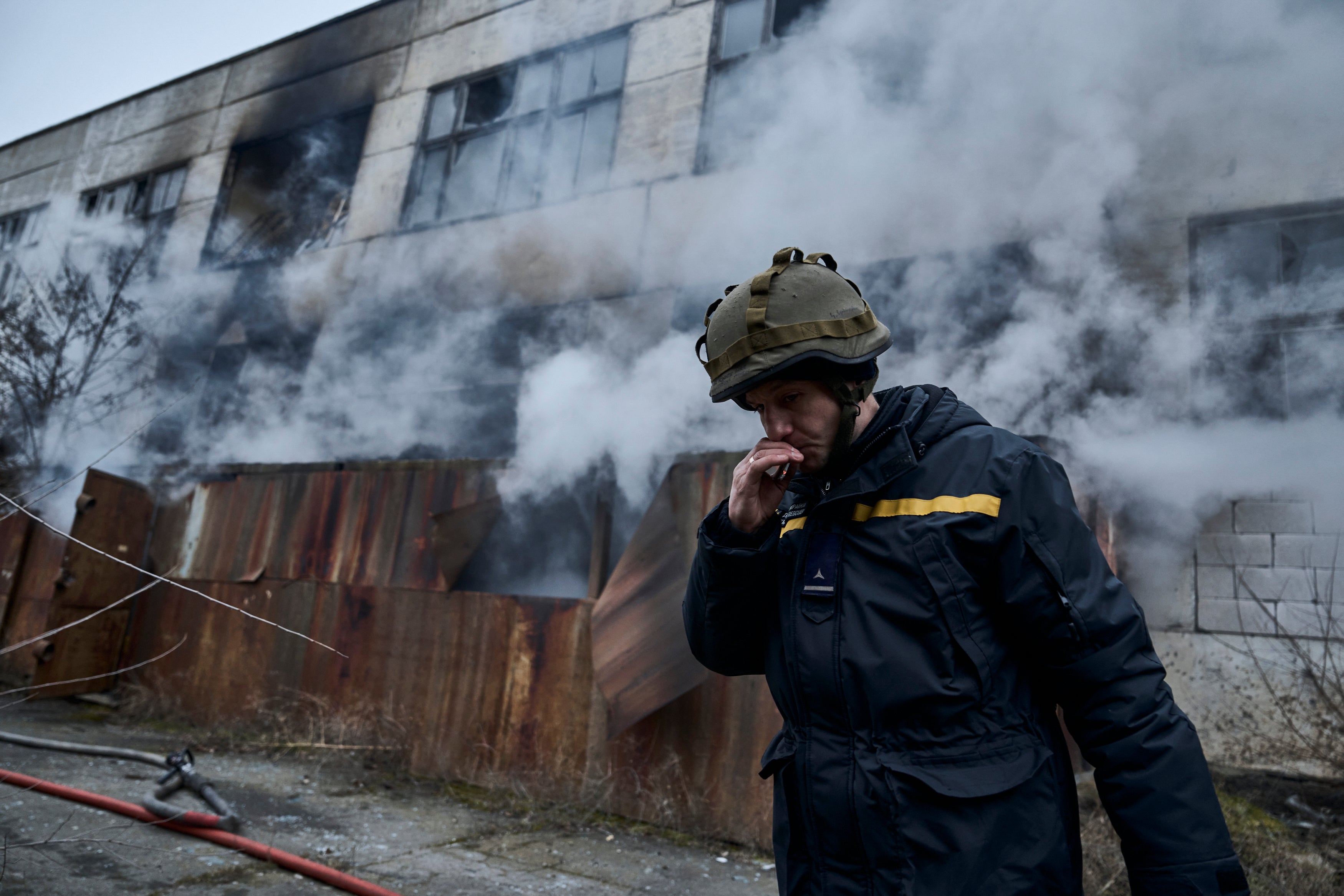UN chief says world ‘walking into wider war’ in Ukraine
Russian forces have been advancing for the first time in six months in relentless battles in eastern Ukraine

The UN secretary general has said he fears the world is “walking into a wider war” in Ukraine.
Addressing the UN General Assembly just weeks ahead of the first anniversary of Russia’s invasion, Antonio Guterres said that the “prospects for peace keep diminishing” and that the chances of further “escalation and bloodshed keep growing”.
“I fear the world is not sleepwalking into a wider war. I fear it is doing so with its eyes wide open,” he added, saying that war is “inflicting untold suffering on the Ukrainian people, with profound global implications”.
It comes as Ukraine sent mixed messages about the fate of its defence minister, leaving a key post in its war effort in doubt even as it braces for what it believes will be a new Russian offensive.
The questions left dangling over the defence minister, Oleksii Reznikov, are a first public sign of serious disarray in Ukraine’s wartime leadership, until now remarkably united during almost a year of all-out Russian military assault.
A day after announcing that Mr Reznikov would be sidelined, a top ally of president Volodymyr Zelensky appeared to row back for now, saying no personnel changes in the defence sector would be made this week.
David Arakhamia, chief of the parliamentary bloc of Mr Zelensky’s party, had said the head of military intelligence, Kyrylo Budanov, would take over the defence ministry, while Mr Reznikov would be made minister of strategic industries.
But Mr Zelensky has remained silent on the issue, while Mr Reznikov said on Sunday he had not been informed of any move and would reject the strategic industry job if offered it.
The confusion caps a two-week crackdown on alleged corruption in Ukraine that has led to the biggest shakeup of officials since Russia’s invasion.
Central and regional officials were fired or quit, security forces raided a billionaire’s home and investigations were launched into suspected fraud at the main oil company and refinery. The Defence Ministry was caught up in accusations it contracted to overpay for food, although Mr Reznikov was not personally accused of any wrongdoing.
Mr Zelensky has said the actions are intended to show that Kyiv can be a safe steward of billions of dollars of Western aid. But they risk destabilising the political class that had stood together against Russia’s invasion.
Meanwhile, Russian forces have been advancing for the first time in six months in relentless battles in the east. A regional governor said Moscow was pouring in reinforcements for a new offensive that could come as soon as next week.
Mr Reznikov, a 56-year-old lawyer, has been the face of Ukraine at international meetings when allies have pledged billions of dollars in arms, and has been warmly received in Western capitals including Paris just last week.
One obstacle to replacing him with Mr Budanov, an enigmatic, fast-rising 37-year-old military intelligence officer decorated for operations that remain secret, is a rule requiring the defence minister to be a civilian.
Volodymyr Fesenko, a political analyst at the Penta think tank, said he expected Mr Budanov to request retirement from the military before his appointment, while Mr Reznikov could be given a post of special envoy, making use of his stature abroad.
Ukraine’s defence ministry did not respond to a request for comment regarding Mr Reznikov.
In announcing plans for the change, Mr Arakhamia said Ukraine’s armed forces should be overseen by people with a background in defence or security in wartime: “War dictates changes in personnel policy,” he wrote on the Telegram messaging app.
But an adviser for Mr Zelensky, Mykhailo Podolyak, noted that Mr Reznikov was respected by allies: “Reznikov was extremely efficient in terms of communication with our partners. And this is a very important component in this case.”
The war is reaching a pivotal point as its first anniversary approaches, with Ukraine no longer making gains as it did in the second half of 2022 and Russia now pushing forward with hundreds of thousands of mobilised reserve troops.
Ukraine is planning its own counteroffensive, but waiting on promised Western battle tanks and infantry fighting vehicles.
Russia was sending more reserves and equipment into eastern Ukraine, Serhiy Haidai, governor of the eastern Luhansk region said on television, adding that shelling was no longer round-the-clock as Russian forces prepare for a full-scale offensive. “After 15 February we can expect [this offensive] at any time,” he said.
Russia’s defence ministry said its forces had taken control of Mykolaivka, a small village in the adjoining Donetsk region, according to state media. There was no immediate response from Ukraine, which has disputed other Russian battlefield reports. Russia’s main target has been the town of Bakhmut, where its state media said the Wagner mercenary group had gained a foothold.
A Belarusian volunteer fighting for Ukraine inside Bakhmut said earlier that Ukrainian forces were still in control of the town, although more Russian forces were appearing daily.
Reuters
This article was amended the day after publication. The headline and first sentence originally reported Mr Guterres as saying that the world was sleepwalking into a wider war, but in fact he said that the world was not sleepwalking towards a wider war, but doing so with its eyes wide open.
Join our commenting forum
Join thought-provoking conversations, follow other Independent readers and see their replies
Comments
Bookmark popover
Removed from bookmarks